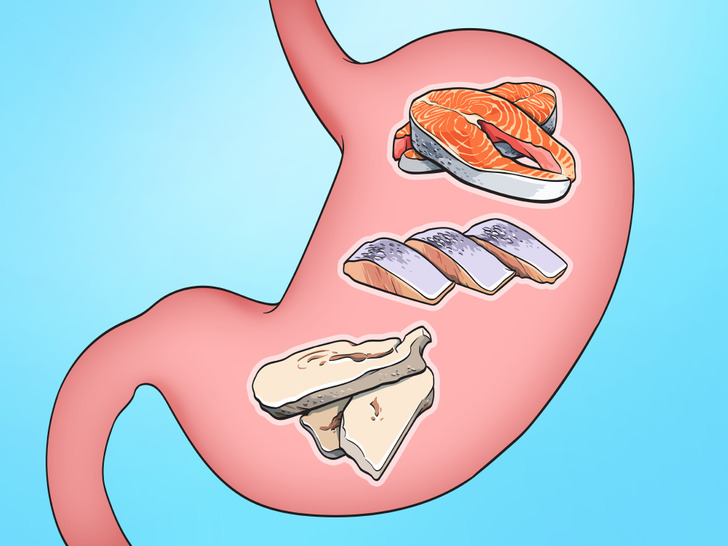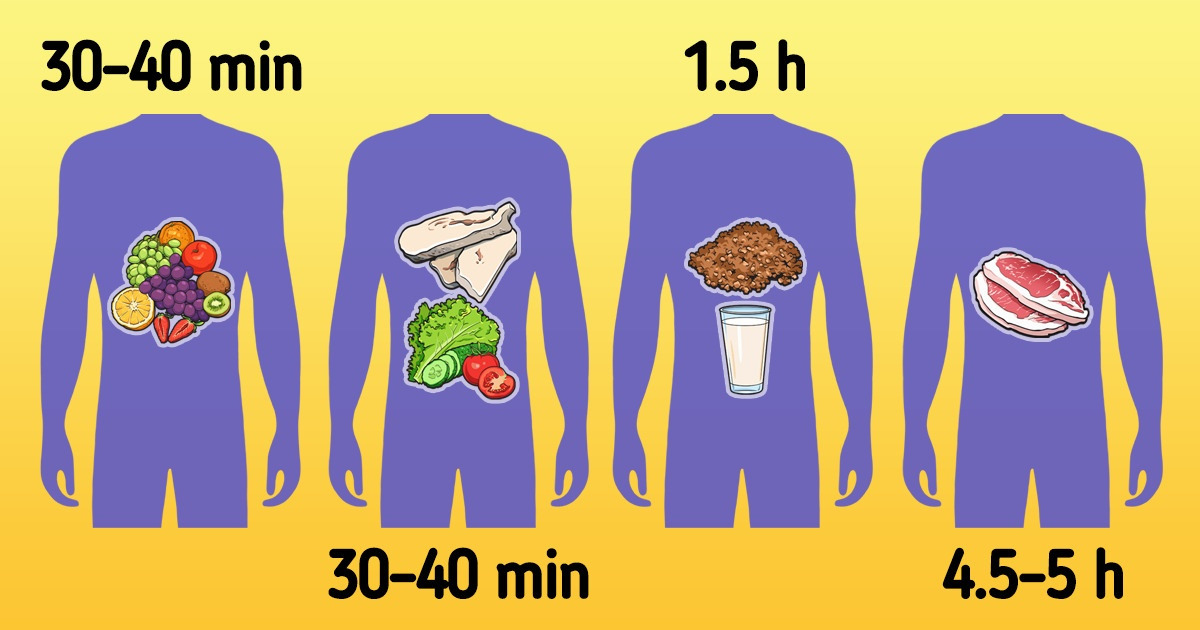
Why It’s Important to Know How Much Time Certain Foods Take to Digest
You have probably noticed that after eating some foods, you feel full for hours, and after others, you’re hungry 20 minutes later. It’s all about the digestion time of certain foods. By the way, most foods we often eat together have different digestion times. Such combinations may lead to problems in the gastrointestinal tract in some people.
With 5-Minute Crafts, you will find out how long certain foods take to go through the digestive stystem.
What digestion is
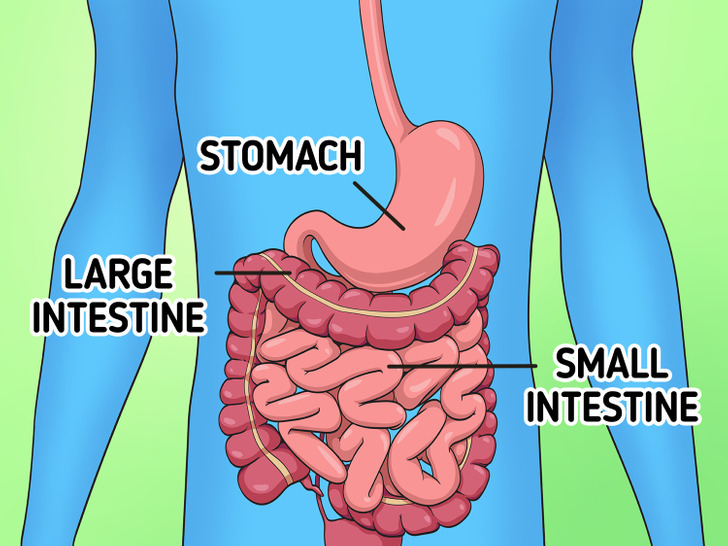
Digestion is the breakdown process of foods into nutrients that allow the body to function.
When we see and smell food, additional saliva is produced that contains the ferments initiating the digestion process. When the food gets into the stomach, it mixes with the ferments and gastric juice. As a result, this watery mix goes through the small intestine. Its walls absorb the necessary nutrients and water. After that, all the unused food gets into the large intestine and leaves the body in a natural way.
The digestion time varies from person to person. It takes anywhere from 6 to 8 hours for food to go through the stomach and the small intestine. And then it gets into the large intestine for further digestion and more water absorption before leaving the body. It takes around 36 hours to travel through the entire large intestine.
So it takes anywhere from 2 to 5 days for food to leave the body after it was eaten.
Types of foods
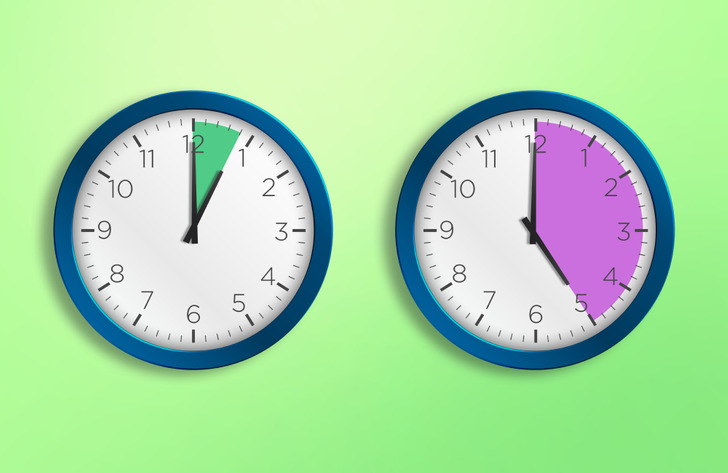
There is a difference between fast-digesting and slow-digesting foods.
- Fast-digesting food doesn’t stay in the stomach for a long time, which is why we feel hungry after a short while. This is why it’s so dangerous — we eat more often and ingest more calories.
- Slow-digesting foods are absorbed at a steady rate, supplying your body with constant energy. However, your body will constantly need to work, and it’s important not to consume too many slow-digesting foods to prevent your digestive system from getting overworked and never resting.
You should know that cold drinks with ice can slow down digestion.
Why we should be careful about eating foods with different digestion times together
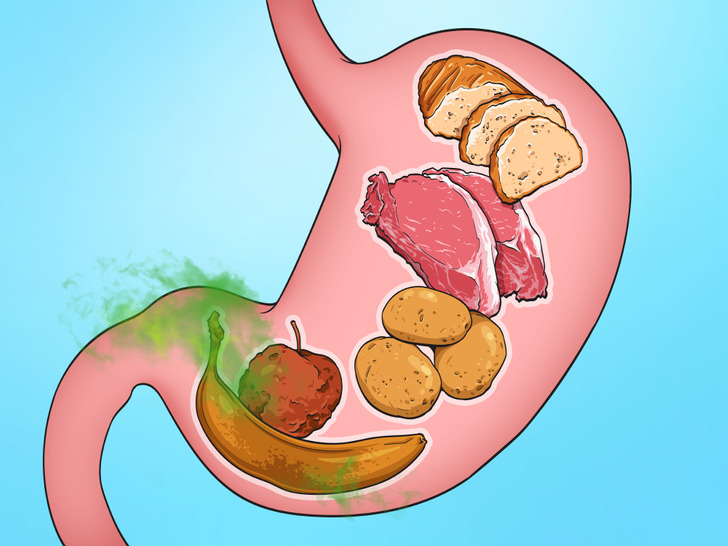
Most foods are digested pretty fast. This is why if you eat them after eating something with a big digestion time, they will remain in the stomach and start fermenting. This can cause problems. Don’t mix fruits with meals, such as fish or steak that you’re going to eat for lunch.
How long foods remain in the stomach
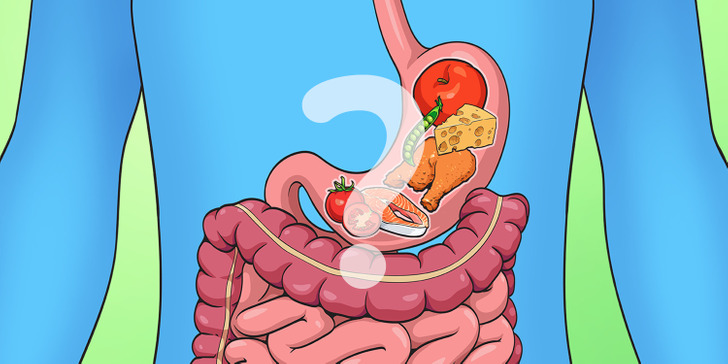
Different meals require different amounts of time to remain in the stomach and get into the intestine. You should take that into consideration to avoid problems.
There’s no exact time for certain foods. It’s individual for everyone and is determined by:
- Body type
- Metabolism
- State of health
- Age
- Physical activity
- Lifestyle
- Stress levels
But there are average digesting times for different foods.
Liquids
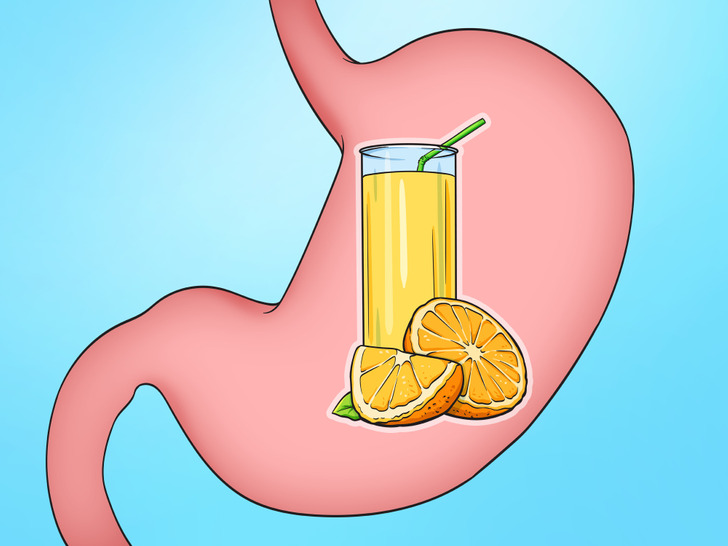
- Water doesn’t need digesting. When you drink water on an empty stomach, you let it go straight to the intestine. The water you drink during or after a meal will be absorbed only 45-120 minutes later.
- Juices and broths don’t contain fiber, which is why they go through the stomach pretty quickly, in just 15-20 minutes.
- Smoothies are drinks made of fruit, vegetables, and parsley with fiber. They give the body more energy and take around 20-30 minutes to digest.
Fruits and berries
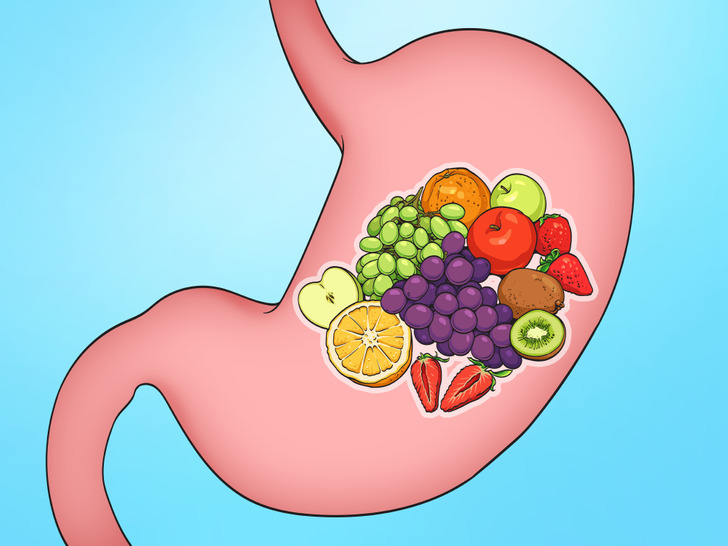
- Watermelon is digested in 20 minutes.
- Melon gets into the intestine in 30 minutes.
- Oranges, grapefruit, grapes, and bananas need 30 minutes to digest.
- Apples, kiwis, pears, cherries, plums, and most other fruits and berries leave the stomach in 40 minutes.
To avoid digestion problems, it’s better to eat berries and fruits with similar digesting times. Watermelon goes through the stomach very fast, so it’s better to eat it separately from anything else.
Vegetables
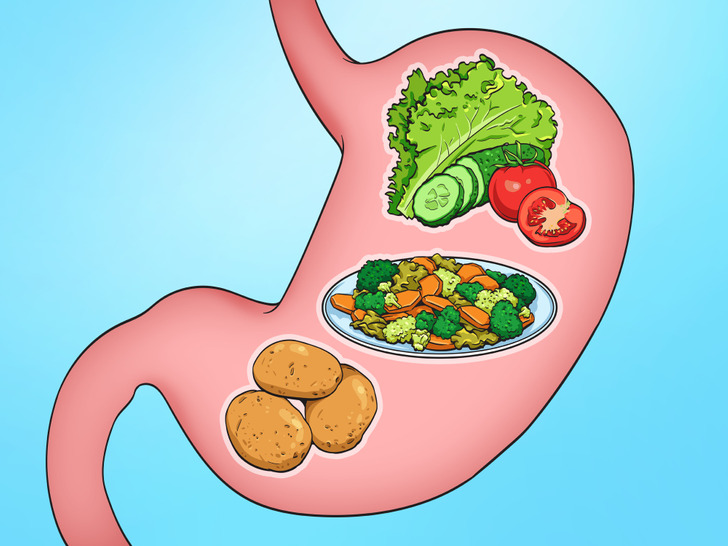
- Fresh lettuce, cucumbers, tomatoes, celery, red and green peppers, and other vegetables are digested in 30-40 minutes.
- Stewed and boiled vegetables, such as cabbage, spinach, broccoli, cauliflower, green beans, carrots, beetroot, and others take 40-50 minutes.
- Jerusalem artichokes, leafy acorn, butternut squash, corn, potatoes, sweet potatoes, yams, and chestnuts are digested for 1 hour.
Grains
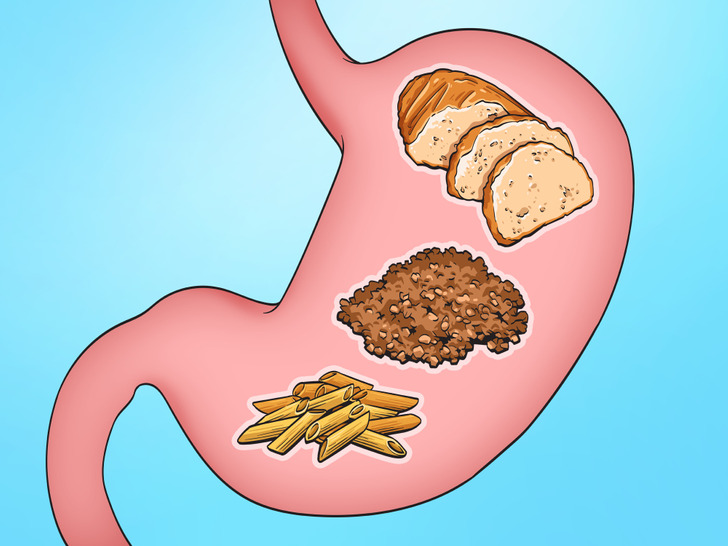
Beans
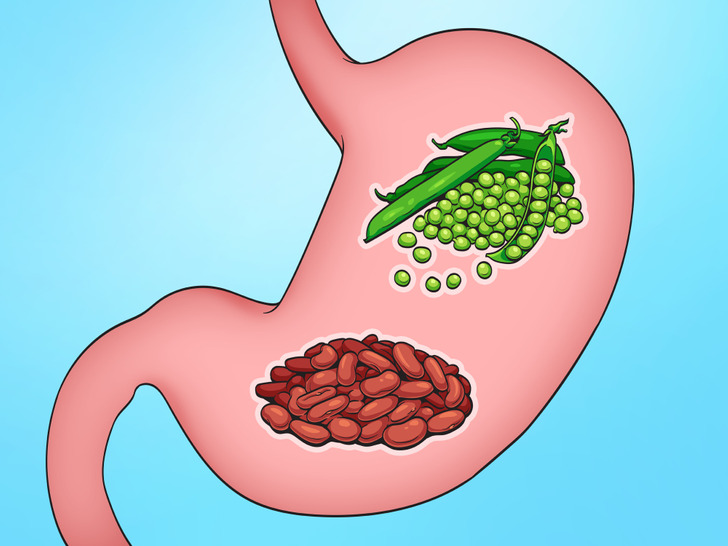
Seeds and nuts
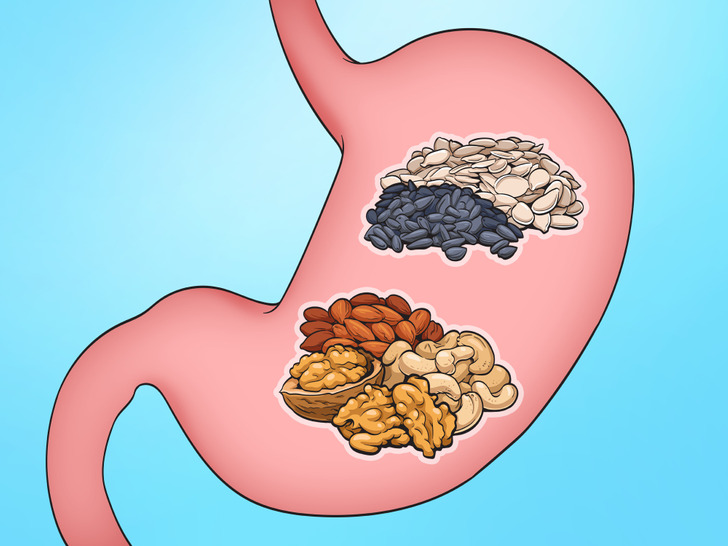
Dairy products
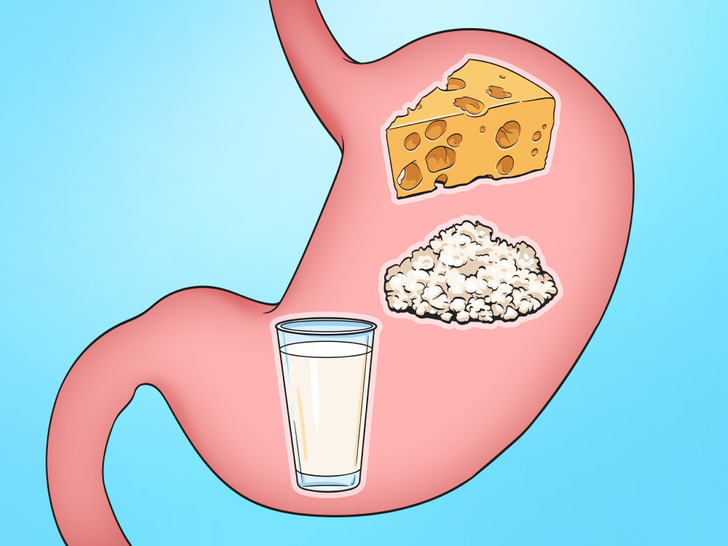
Eggs
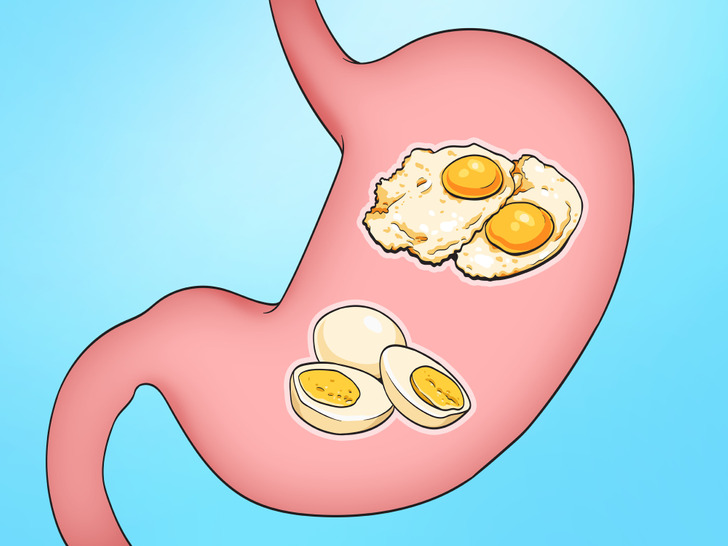
Meat
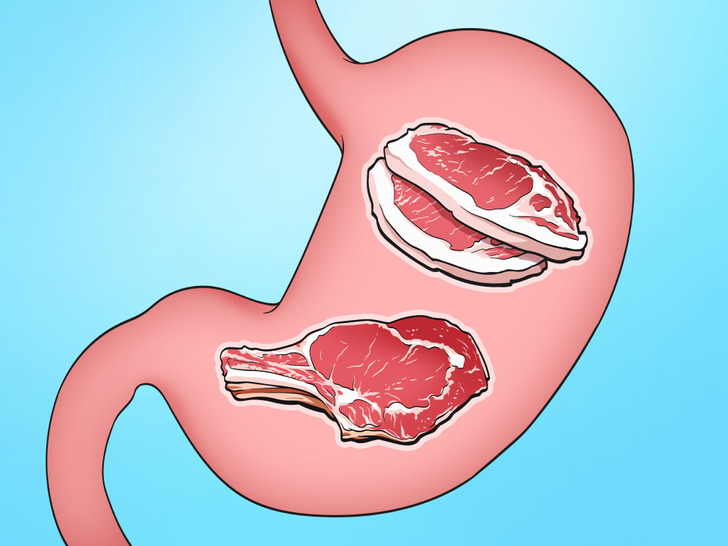
Poultry
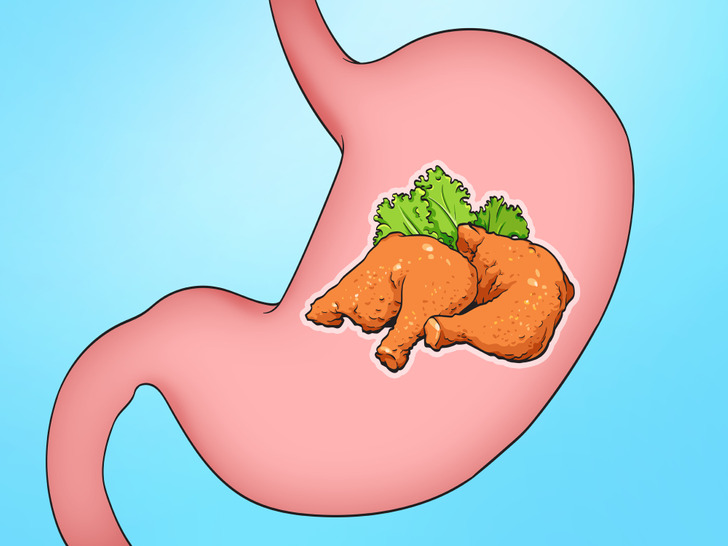
Fish
